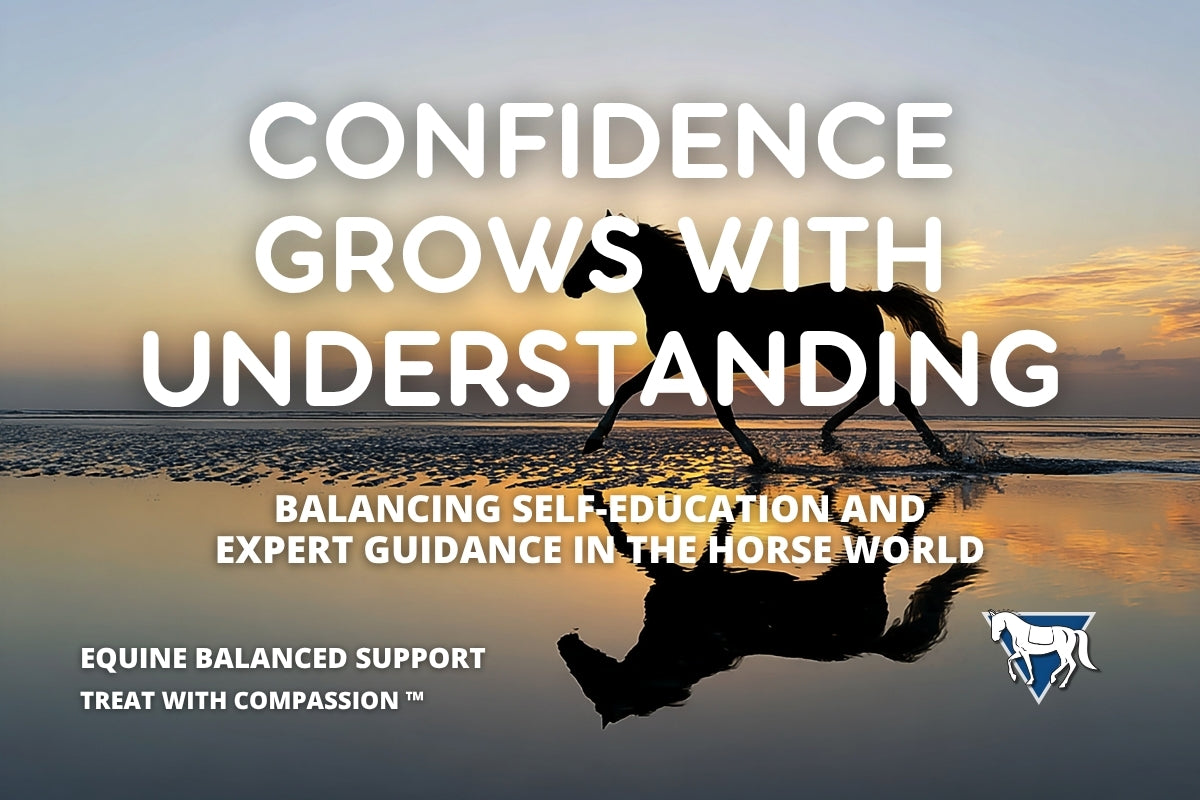The Dunning-Kruger Effect in Horses: Learning vs Expertise

The Dunning-Kruger Effect in the Horse World: Why Balance Between Research and Professional Advice Matters
When Confidence Outpaces Knowledge
Horses inspire passion, dedication, and a lifelong love of learning. But with today’s access to social media groups, online forums, and YouTube tutorials, horse owners can easily feel like experts after only a few hours of research.
While self-education is valuable, it can sometimes lead to a dangerous cognitive bias known as the Dunning-Kruger effect, where people with limited knowledge overestimate their abilities. At the same time, true experts recognize the complexity of their field and may underestimate their own expertise.
In the horse world, this bias shows up in training, hoof care, and veterinary decision-making. The challenge for owners is finding the right balance—learning enough to be informed advocates for their horses while respecting the experience of trainers, farriers, and veterinarians.
What Is the Dunning-Kruger Effect?
The Dunning-Kruger effect is a psychological phenomenon first described in 1999. It highlights how individuals with little experience often feel overly confident in their knowledge, while seasoned experts tend to be more cautious because they understand the complexity of the subject.
In horse care, this might look like:
- A new rider thinking they can solve behavioral issues after watching training videos
- An owner deciding to “fix” their horse’s hooves after reading about barefoot trimming online
- Someone self-diagnosing their horse’s lameness without consulting a veterinarian
True professionals often temper their advice with phrases like “It depends” or “Every horse is different.” They recognize the nuances of horse health and training—knowledge gained only through years of study and hands-on experience.
Where Horse Owners Fall Into the Dunning-Kruger Trap
1. Training and Riding Mistakes
Horse training often looks easier than it is. A rider might think teaching a horse to load into a trailer is straightforward—until they face a nervous or panicked animal. Timing, body language, and intuition are subtle skills developed only through experience. Misapplied techniques can make a horse less trusting, less safe, and harder to handle.
Just like people, horses learn differently. Some are quick studies; others need repetition, patience, or creative approaches. An experienced trainer understands these differences and adapts their methods accordingly. They know when to add pressure, when to release it, and how to structure exercises that build confidence rather than confusion. Experience teaches not only what to do, but when and how much—a skill that can’t be mastered through online videos or books alone.
2. Hoof Care and Farriery
The phrase “no hoof, no horse” holds true. Yet hoof care is one of the most common areas where owners overstep. Online debates about barefoot vs. shod horses, trimming styles, and corrective shoeing can make anyone feel informed—but hoof balance, biomechanics, and pathology require years of training and practice. A poorly executed trim can cause pain, lameness, or long-term structural damage.
Professional farriers consider a wide range of variables before picking up a rasp: soundness, conformation, workload, turnout environment, footing, and even the time of year. A performance horse competing on hard ground will have very different needs from a pasture companion on soft footing. By evaluating all these factors, farriers create a trimming or shoeing plan that promotes comfort, longevity, and performance.
3. Veterinary Advice and Horse Health
Google has made everyone a “researcher,” but equine veterinary medicine is a highly specialized field. Colic, for example, can stem from many causes—ranging from gas buildup to intestinal twists. Only a veterinarian has the diagnostic tools and expertise to tell the difference, and delaying treatment through self-diagnosis can have fatal consequences.
Vaccinations are another area where individualized veterinary expertise is critical. Choosing which vaccines a horse needs depends on regional disease risks, travel frequency, age, competition schedule, breeding activity, and any prior vaccine reactions. A young show horse that travels frequently has very different needs than an older retiree who never leaves the property. Veterinarians design vaccination programs that balance protection with safety, ensuring each horse receives the proper care for its lifestyle.
Why Horse Owner Education Still Matters
Recognizing the risks of overconfidence doesn’t mean horse owners shouldn’t educate themselves. On the contrary, informed owners are better advocates for their horses.
- Nutrition knowledge helps prevent ulcers, laminitis, and colic.
- Behavior awareness allows early recognition of pain or stress.
- Basic anatomy makes conversations with vets and farriers more effective.
Education empowers owners to observe, communicate, and collaborate—but never to replace professional expertise.
The Irreplaceable Value of Professionals
Trainers: Developing Both Horse and Rider
Good trainers don’t just “teach horses tricks.” They develop trust, timing, and communication between horse and rider. Skilled trainers identify subtle training gaps and prevent dangerous behaviors from escalating. Their ability to recognize how individual horses think and learn allows them to tailor lessons that fit the horse, not force the horse to fit the lesson.
Farriers: Guardians of Soundness
Farriers and trimmers blend art and science. They assess conformation, movement, and hoof structure to keep horses comfortable and sound. Their decisions must constantly adapt to each horse’s unique combination of soundness, workload, environment, turnout conditions, and seasonal factors—ensuring balance and long-term health.
Veterinarians: Horse Health Experts
Veterinarians undergo extensive training and ongoing education, carrying the responsibility of making medical decisions for their patients. From dental care to lameness exams to tailored vaccination and deworming programs, their expertise is backed by diagnostic tools, ethical standards, and years of hands-on practice.
How to Be an Educated Yet Humble Horse Owner
-
Research with Purpose
Read reputable sources, attend clinics, and stay curious. Knowledge makes you a better advocate for your horse. Ask your trainer, veterinarian, and farrier for recommended educational resources. -
Value Professional Experience
Trainers, farriers, and veterinarians see hundreds of horses every year. Their advice is rooted in broad experience, not isolated anecdotes. -
Ask, Don’t Challenge
Use your research to ask informed questions—“I read about this approach; how might it apply to my horse?”—and foster collaboration rather than confrontation. -
Recognize Complexity
Most horse-care decisions are situational. Professionals may answer with “It depends” because every horse is unique. -
Think Team, Not Solo
The best horse care happens when owners and professionals work together as a team, sharing knowledge and mutual respect.
Learning with Humility
The Dunning-Kruger effect in the horse world reminds us that enthusiasm can sometimes outpace expertise. In a world overflowing with online information, the wisest horse owners are those who balance self-education with respect for the professionals who dedicate their lives to equine welfare.
The most responsible owners never stop learning—but they also know when to listen. By combining curiosity with humility, we ensure our horses receive the knowledgeable, compassionate, and expert care they truly deserve.





Leave a comment